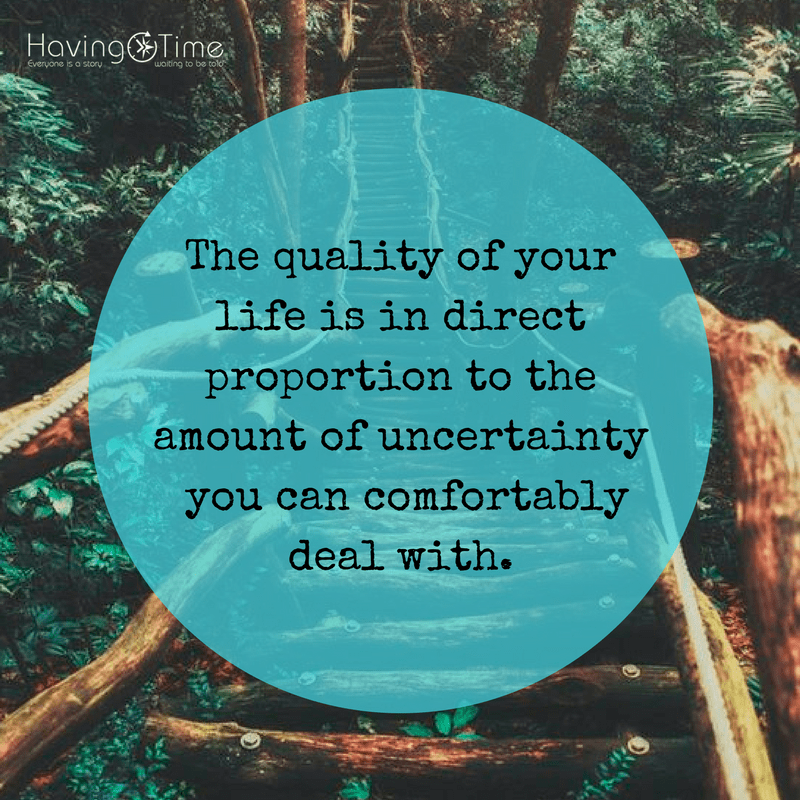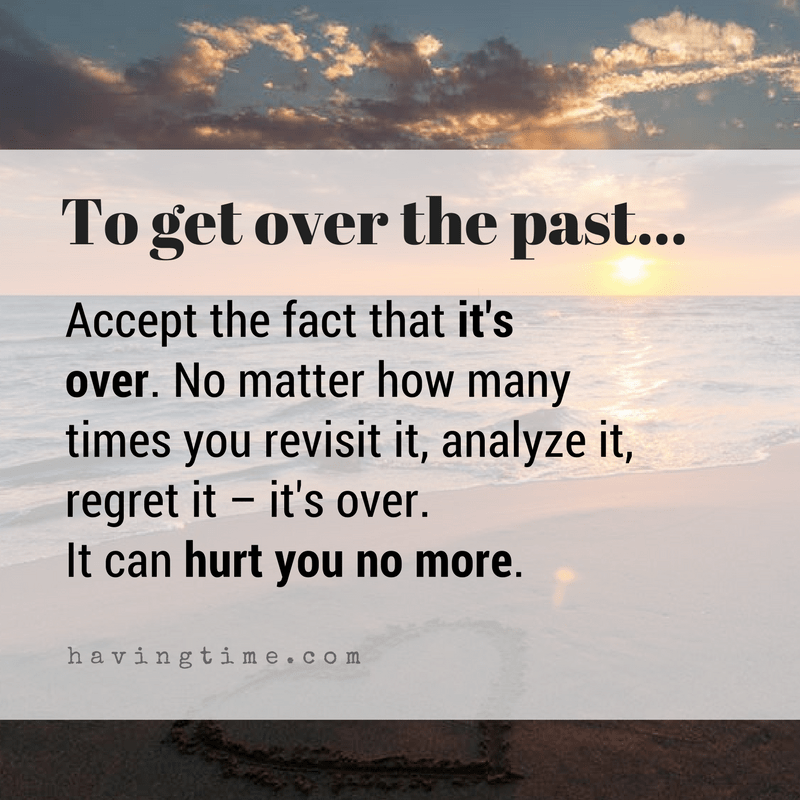
“Always hold fast to the present. Every situation, indeed every moment, is of infinite value, for it is the representative of a whole eternity.” –Johann Wolfgang von Goethe
Have you ever wondered why do we hold on to the past so tightly at times? If it burns we get to take our hands off the stove in that instant, yet why is it so challenging to let go of the experiences that have caused us unthinkable amounts of pain and suffering?
Some of us could find themselves running down the memory lane each time they crave for certainty. And what is a certainty? It’s rooted in the need for survival. We all earn to feel certain that we can save ourselves from harm, pain, self-destruction and that we can find some comfort too.
Unceasing pain means perpetual damage, which piece by piece eventually leads to our downfall. Isn’t it frightening stepping into the unknown? Of course, it is.
Sometimes it’s unthinkable to let the guard down and allow yourself to be raw and vulnerable. The mere thought that brings this urgent sense of uncertainty about what hides behind the door that leads into the future could be overwhelmingly uncomfortable. And so we cling on to the past even if it drenched in nothing but pain; it’s familiar and, therefore, we have certainty about it.

The other reason it is quite challenging to let go of the grips of the past is that of the way we tend to link information to our emotions.
Take this, as an example. A friend of mine had quite a few issues in her personal life recently. Whenever her partner does something that irritates her or stirs up emotional pain, she has a knee-jerk reaction to bring that up over and over again even the things that happened 5 years ago; all the little things see their comeback throughout the relationship. Surely, her partner constantly feels that it’s impossible to win because no matter how hard he tries his best to repair the damage, the past will be spotlighted no matter his best efforts to amend the current situation.
There’s a good reason she can’t let go of those things that happened in the past.
How to Stop Letting Painful Memories Control Your Present. Part 1
I didn’t want to bring this up but think back to the day that shook the entire world on 9/11. I bet you have no trouble picturing who you were with and what you were up to when you first heard about what has happened in New York on that day. But if I were to ask you about, say 7/11, there’s a chance that your memory is hazy when it comes to retrieving those details. Why? Because we don’t tend to hold on to information that doesn’t have an emotion attached to it which is an associated feeling. Yet, information with emotional imprint makes a lasting impression.
Anyone could attach emotion to anything that makes a significant impact on their lives, especially if it causes them pain and unthinkable amounts of suffering.

What does it cost us not letting go of the past?
I went for a walk recently and I was wandering around for hours, contemplating. Thinking, observing the thoughts. What does it cost us not letting go of the past? What impact it has on our daily lives, relationships, and our happiness? Can we learn to loosen up the grip of the past moving on in a happier, healthier way?
Imagine yourself sitting on a bench at a train station. Trains are passing by left and right and all you can do is to sit there, observing carefully. Now think of the trains as your thoughts – sure, you can jump up from the bench, hop on a train and get carried away along to the next stop or wherever that train is headed.
Or… you can choose to stay grounded sitting on the bench watching those trains of thoughts pass you by. Observing, noticing, acknowledging thoughts without getting swept away with them.
All thoughts come with emotional content, it generates feeling within us. How we think about something directly affects how we feel about it. When we are worried about something, we feel the anxiety and worry physically and emotionally within us. On the other hand, when we think exciting thoughts we feel happiness and excitement within us, emotionally and physically too.
That is why developing mindfulness skills through noticing thoughts can help to regulate our emotional state making the quality of our life better…
* to be continued in Part 2


